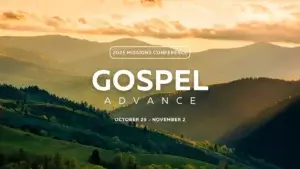In a culture where temptation is ever-present and sin is often celebrated, Proverbs 7 stands as a timeless warning from a loving Father to His children. Pastor Léveillé’s sermon on this chapter urges us to walk in wisdom, cling to God’s Word, and recognize the destructive nature of sin. Through the vivid imagery of a father’s counsel to his son, Solomon illustrates the subtle allure of temptation and the devastating consequences of straying from God’s path. Yet, this passage is not merely a cautionary tale; it is a call to pursue the abundant life Jesus promises: a life of joy, purpose, and holiness rooted in a relationship with Him. Below, we unpack the key lessons from Proverbs 7, as shared in this powerful sermon, to help us live wisely in a world that seeks to pull us away from God’s truth.
Keep God’s Word Close – It’s Your Guardrail (Proverbs 7:1-5)
Proverbs 7 begins with a heartfelt plea from Solomon to his son: “My son, keep my words, and lay up my commandments with thee. Keep my commandments, and live; and my law as the apple of thine eye” (Proverbs 7:1-2, KJV). This is not a harsh command but a loving instruction rooted in relationship. Solomon emphasizes that God’s Word is a treasure, a guardrail that protects us from the dangers of sin. Pastor Léveillé highlighted that keeping God’s Word is an active, daily responsibility, akin to a watchman guarding a city. It’s not enough to passively hear the Word; we must meditate on it, store it, and let it shape our identity.
The sermon illustrated this with the analogy of a rainy-day bank account, ready for unexpected needs. Similarly, we must build a reservoir of biblical principles to draw upon when temptation strikes. By treating wisdom as a close companion: “Say unto wisdom, Thou art my sister; and call understanding thy kinswoman” (Proverbs 7:4, KJV) we equip ourselves to resist the flattery of sin. Pastor Léveillé shared the story of R.G. Letourneau, an industrialist who installed safety guardrails on his machinery despite mockery. Those guardrails saved lives, just as God’s Word saves us from spiritual ruin when we keep it close.
Temptation Has a Script – Don’t Fall for It (Proverbs 7:6-21)
In verses 6-21, Solomon shifts to a vivid narrative, observing a young man ensnared by temptation: “For at the window of my house I looked through my casement, And beheld among the simple ones, I discerned among the youths, a young man void of understanding” (Proverbs 7:6-7, KJV). This young man, described as “simple” or lacking discernment, walks too close to danger, unaware of the trap awaiting him. Pastor Léveillé emphasized that temptation follows a predictable script, often disguised as desirable rather than dangerous. The woman in the story, dressed as a harlot, uses flattery, secrecy, and even spiritual language to lure the young man, claiming, “I have peace offerings with me; this day have I payed my vows” (Proverbs 7:14, KJV).
The sermon underscored that temptation persuades gradually, lowering defenses through smooth talk and false promises. Pastor Léveillé urged us to flee temptation, as Joseph did in Genesis, rather than negotiate with it. Like a coach drilling his players to know their next move before the ball is hit, we must prepare our hearts with God’s wisdom to respond rightly when temptation arises. The spiritually naive are particularly vulnerable, but by staying rooted in Scripture, we can discern and resist sin’s deceptive allure.
Sin Always Ends Worse Than It Begins (Proverbs 7:22-27)
The consequences of yielding to temptation are starkly depicted in the chapter’s closing verses: “He goeth after her straightway, as an ox goeth to the slaughter, or as a fool to the correction of the stocks; Till a dart strike through his liver; as a bird hasteth to the snare, and knoweth not that it is for his life” (Proverbs 7:22-23, KJV). Sin promises pleasure but delivers destruction. Pastor Léveillé likened this to the Tacoma Narrows Bridge, which collapsed in 1940 due to ignored flaws, earning the nickname “Galloping Gertie.” Similarly, sin’s small compromises seem harmless until they lead to catastrophic loss.
The sermon reminded us that God’s warnings are rooted in His love, not judgment. Jesus paid the ultimate price for our sins, offering forgiveness and cleansing to those who confess: “If we confess our sins, he is faithful and just to forgive us our sins, and to cleanse us from all unrighteousness” (1 John 1:9, KJV). Yet, God also calls us to guard our hearts and walk in purity, not to earn salvation but to experience the abundant life He desires for us. The pastor passionately declared that Jesus offers a life of joy and purpose, far surpassing the fleeting pleasures of sin.
Conclusion
Proverbs 7 is a sobering reminder that the path to sin may look safe at first, but it always leads to ruin. Yet, it is also a beacon of hope, pointing us to the wisdom of God’s Word and the transformative power of Jesus Christ. Pastor Léveillé’s message calls us to keep Scripture close as our guardrail, to recognize temptation’s deceptive script, and to flee from sin’s destructive end. Above all, it invites us to trust in Christ, who not only saves us from sin’s penalty but empowers us to live a life of purity and fulfillment. Whether you are searching for salvation or seeking to walk closer with God, let Proverbs 7 inspire you to pursue the abundant life Jesus promises: a life of joy, purpose, and eternal reward.












